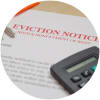Rent Increase Letter: Free Template + Expert Guide (2024)

Understanding how to write a rent increase letter is not just a requirement—it's an essential skill set for any successful landlord. With rental rates increasing by almost 20% nationally in recent years, it's more critical than ever to navigate this sensitive issue effectively. This document does more than just inform your tenant of an upcoming rate change; it also sets the tone for your ongoing relationship.
Ready to take that important step in managing your rental property? Dive deep into our comprehensive guide. We'll walk you through every aspect you need to consider, from timing and legal considerations to the art of effective communication. Learn how to write a rent increase notice that is not only legally compliant but also respectful and fair.
Rental Increase Letter Template & Guide
What to Include in a Rent Increase Letter
A well-crafted rent increase notice template ensures that your letter is both clear and comprehensive.
- Date of the rent increase letter
- Name, address, and relevant information of both the tenant and landlord
- Apartment address and unit number
- Make a note of the expiration date of an existing lease
- Current rent amount
- Amount the rent increases if they choose to renew
- Date of the rent increase
- A deadline for accepting or rejecting a rent increase
- The time a renter has to send a non-renewal notice if they don’t agree to the rent increase
A thoroughly detailed and straightforward rent increase notice simplifies the process, making it easier for both parties to reach a mutual understanding and agreement.

How to Deliver a Rent Increase Letter
The way you deliver your rent increase notice isn't just a matter of preference—it might be governed by the laws of your locale. Specific states have regulations detailing acceptable methods for sending such notices.
- Certified Mail: Whenever feasible, opt for this delivery approach and retain the receipt as verification that the tenant has acknowledged receipt of the notice.
- Email: While email is convenient for sending rent increase notices, be aware that not all jurisdictions permit this method. Moreover, tracking email receipt can be more challenging.
- Hand Delivery: While immediate confirmation of receipt is a perk of this approach, it could put your tenant in an awkward position or make them feel pressured about the impending rent hike.
- In Lease Agreement: Some lease agreements already incorporate stipulations for pre-planned rent hikes, eliminating the need for separate notification letters.
Regardless of the delivery method you opt for, it's crucial to maintain a record for your own files. Document the date and how you sent the notice, and if you discussed the matter in person with the tenant, make a note of that conversation as well.
Rent Increase Notice Template
If you're in search of a straightforward example to guide you in drafting your own rent increase letter, the following sample can serve as a useful template.
(Date)
(Tenant Name)
(Address)
(City, State, Zip Code)
Dear (Names of all renters on the existing lease),
We hope you've been enjoying your time at [Property Address]. Your current lease, which began on [Start Date], is set to expire on [Expiration Date]. We value you as a tenant and would like to discuss the terms for renewal.
As of [Effective Date], your monthly rent will be adjusted from [$Current Rent] to [$New Rent]. This updated rate will be due on [Due Date] and on the first day of each following month.
In line with the rent adjustment, your refundable security deposit will also increase by [$Deposit Increase]. The additional amount will be due on [Date], making the total sum due on that date [$Total Amount Due].
If you are in agreement with these new terms, please confirm by [Reply-by Date]. We will then schedule a time to formalize the lease renewal. Should you choose not to accept the new rent terms, please note that you are required to vacate the premises by [Vacate Date].
Thank you for your attention to this matter. We look forward to continuing to make [Property Address] a comfortable place for you to call home.
Sincerely,
(Landlord Name)
(Landlord Signature)
(Address)
(City, State, Zip Code)
(Phone Number)

6 Reasons to Increase Rent
There are several compelling reasons a landlord might have for justifiably increasing the rent. Check them out below for a better understanding.
1. Property Maintenance
Regular property maintenance is a common trigger for issuing a rent increase notice, particularly when new amenities have been introduced. Whether you've added a secure parking lot, an on-site fitness center, or even a swimming pool, these enhancements necessitate higher upkeep costs. These new features add value to the property, and it's only reasonable that the rent reflects these improvements.
However, it's not just about new additions; there are cost escalations to consider even in the absence of upgrades. Over time, the rates charged by your property maintenance vendors are likely to rise due to inflation and increased labor costs. Whether it's the gardeners, cleaners, or security services, their fees tend to go up, which impacts your overall operating expenses. As a result, periodic rent increases may be required to sustain the quality of your rental property.
2. Cost of Living
It's no secret that the cost of living is steadily climbing. Most renters are aware that their living expenses, from groceries to utilities, are likely to rise year over year. It's a reality they often anticipate, hoping for salary adjustments or raises from their employers to balance out these incremental changes.
Similarly, landlords and property managers face their own set of financial pressures that parallel these shifts in the economy. From property taxes to insurance premiums, the overhead costs associated with maintaining a rental property also experience upward trends. Unfortunately, rent increases become a necessary course of action to offset these expenses and keep the property both functional and competitive in the market.
3. Taxes
When local or state taxes experience an uptick, it's an immediate ripple effect on your operational expenses as a landlord. This is especially true if you've made recent improvements to your property, like renovating units or adding amenities, which can sometimes trigger a re-evaluation and subsequent tax increase. These enhancements, while beneficial for tenants by elevating their living experience, also come at a cost that needs to be accounted for.
Given these circumstances, adjusting the rent becomes a strategic move to mitigate the impact of heightened taxes and renovation costs. By raising the rent, you're not only sustaining the property's fiscal health but also ensuring you can continue to offer quality housing that both you and your tenants can be proud of.
4. Property Improvements
Actions like re-painting common areas, fixing structural damage, or even a full-fledged makeover of a unit are not just upgrades; they enhance the overall quality of life for your tenants. These initiatives can breathe new life into the property, transforming it into a more attractive and comfortable space to live.
However, these improvements also represent a financial investment on your part as a landlord. Whether it's labor costs or the price of materials, these upgrades come with their own set of expenses. As a result, sending out a rent increase letter in the wake of such improvements is not only common practice but often a requirement financially. By doing so, you're helping the property remains sustainable in the long term while continuing to offer an elevated living experience.
5. Neighborhood Changes
As neighborhoods evolve, so too does the market value of rental properties within them. If you find that you're still charging the same rent that you were a few years back, it may be time to re-assess, especially if newer or upgraded complexes in the vicinity have set a higher price benchmark.
Whether it's due to improved local amenities, reduced crime rates, or simply a rise in demand, these changes can significantly influence what you can reasonably charge for your property. Staying competitive in market like this requires adapting your pricing strategy, making a rent increase not only recommended, but often essential for the financial viability of your rental property.
6. Legal Requirements
In some cases, rent control laws or existing lease agreements may contain specific rules that outline the conditions under which you're allowed to raise the rent. These guidelines can range from restrictions on the percentage of increase to the timing and frequency of such adjustments. While these legal frameworks are designed to protect both landlords and tenants, they often also provide opportunities for rent increases that are in line with regulatory standards.
As a landlord, it's essential to familiarize yourself with these guidelines to fully understand when and how you can legally adjust rent. Doing so enables you to stay in compliance with the law while optimizing your rental income in accordance with what's allowed legally.
Factors to Consider Before Raising Rent
Before you draft a letter to raise the rent, it's crucial to evaluate a range of factors and situations.

Rent Competition
Understanding your rental market is the first step in setting your own prices. Look at similar properties in your area. What are they charging? This will help you establish a competitive rate for your unit.
However, price alone isn't the deciding factor for most tenants. They also look at what they're getting for their money. If nearby properties offer better features at a higher price, you should aim to match or exceed their standards. This helps your property remain appealing and justifies the rent you're asking.
Increase Amount
The size of the rent increase matters. If you know your tenants are planning to leave, aligning with market value is straightforward. This adjustment is all about market dynamics.
On the other hand, keeping good tenants should be a priority. If they might struggle with a major increase, consider a smaller one. It's a balance between fair pricing and tenant retention.
Lease Terms
Your lease terms play a role in rent hikes. Some leases include an automatic rent increase, like 5% at each renewal. This is already set in the contract.
However, such clauses need to be clear and fair. If you're adding a new rule, make sure to communicate it well in advance. This keeps everyone on the same page.
Notice Period
Understanding local laws is crucial when you're planning to raise the rent. Many states mandate a 60-day notice for 'tenants at will,' who can otherwise be evicted without warning.
Different lease types have their own rules for notice periods. Month-to-month leases typically require a 30-day notice. For long-term contracts, aim to inform your tenants 30 to 60 days before the lease expires.
List With Us
Now that you know the ins and outs of writing a rent increase letter, you can review your current leases. The goal is to stay transparent, proactive, and respectful to your tenants.
As you grow your rental business, you should expect to send rental increase notices regularly to keep up with market value and on top of your profits. And if the time comes when you need to search for new tenants, list your units on Apartment List and get access to thousands of amazing renters looking for the next apartment to call home.
Share this Article






